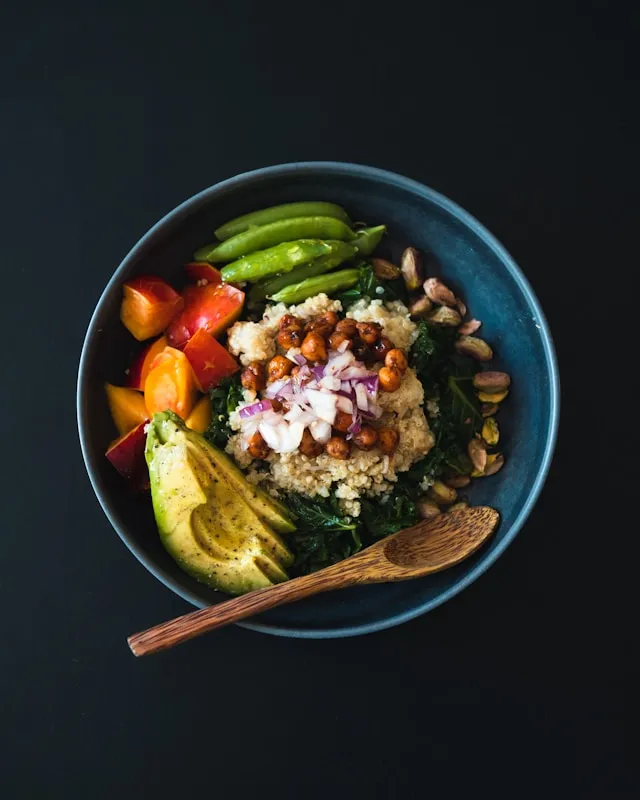Diets
The Mediterranean diet
The Mediterranean diet is characterized by a high intake of plant-based products, olive oil, and fish, with a restriction on red meat and sweets. It primarily consists of home-cooked meals with minimal processing, seasonal vegetables, fruits, and herbs. This diet has numerous health benefits, including a reduced risk of heart disease, diabetes, and certain types of cancer. Its richness in polyunsaturated fats, vitamins, fiber, antioxidants, and other beneficial components contributes to these advantages. One of its key features is the lack of a strict product list, allowing individuals to adopt a healthy diet regardless of their geographical location.


The Keto diet
The Keto diet, short for Ketogenic diet, is a low-carb, high-fat eating plan that has gained immense popularity in recent years. The primary goal of the Keto diet is to switch the body’s primary source of energy from glucose (sugar) to ketones, which are produced when the liver breaks down fat. This process is called ketosis. By eliminating high-carb foods and focusing on whole, nutrient-dense foods, the body enters a state of ketosis, resulting in potential weight loss, improved blood sugar control, and increased energy. The Keto diet is often used to manage various health conditions, including type 2 diabetes and epilepsy.
The Whole30 diet
The Whole30 is a 30-day dietary challenge that aims to promote overall health and weight loss by eliminating common dietary irritants. Developed by Melissa Hartwig and Dallas Hartwig, the program eliminates grains, dairy, legumes, added sugars, and processed foods, while emphasizing whole, nutrient-dense foods like meats, fish, fruits, and vegetables. Participants must also avoid novel foods and ingredients that may be difficult to digest. The program helps individuals reset their taste preferences, improve digestion, and establish healthy eating habits. Many people have reported significant health improvements and weight loss after completing the Whole30 challenge.


The Paleo diet
The Paleo diet, also known as the Caveman diet, is a dietary approach that focuses on consuming whole, unprocessed foods that were likely eaten during the Paleolithic era. The diet eliminates grains, dairy products, legumes, added sugars, and processed foods. Its proponents claim that this diet helps individuals lose weight, improve their overall health, and reduce their risk of chronic diseases. The diet emphasizes lean meats, fish, fruits, vegetables, nuts, and seeds. By following a Paleo diet, individuals can potentially reap benefits such as increased energy levels, improved digestive health, and a reduced risk of chronic diseases like diabetes and heart disease.
Flexitarian Diet
The flexitarian diet is a semi-vegetarian eating approach that prioritizes flexibility and moderation. As a hybrid of vegetarian and traditional diets, it promotes a predominantly plant-based diet with occasional meat consumption. Flexitarians aim to include 1-3 servings of meat per week, focusing on whole grains, fruits, vegetables, legumes, and nuts. This approach benefits those looking to minimize their environmental footprint, improve overall health, and enjoy the flexibility to occasionally incorporate meat into their diet. By doing so, flexitarians can maintain a balanced and sustainable relationship with food.


A Vegetarian diet
A Vegetarian diet is a plant-based diet that excludes meat, fish, and poultry, but may include dairy products, eggs, and other animal by-products. There are several types of vegetarian diets, including lacto-ovo-vegetarian, lacto-vegetarian, and vegan. A well-planned vegetarian diet can provide all the necessary nutrients for good health, including protein, iron, and calcium. With the right guidance, incorporating a vegetarian diet into your lifestyle can be easy and enjoyable!
Vegan Diet
A well-planned vegan diet can be rich in nutrients and offer numerous health benefits. Vegans avoid consuming animal products, including meat, dairy, eggs, and even honey. Instead, they focus on plant-based foods such as fruits, vegetables, whole grains, legumes, and nuts. Some key nutrients to pay attention to on a vegan diet include vitamin B12, iron, and omega-3 fatty acids, which can be obtained through fortified plant-based milk, dark leafy greens, and walnuts. Vegans may also consider consulting with a registered dietitian to ensure they’re getting all the necessary nutrients for optimal health and well-being.


